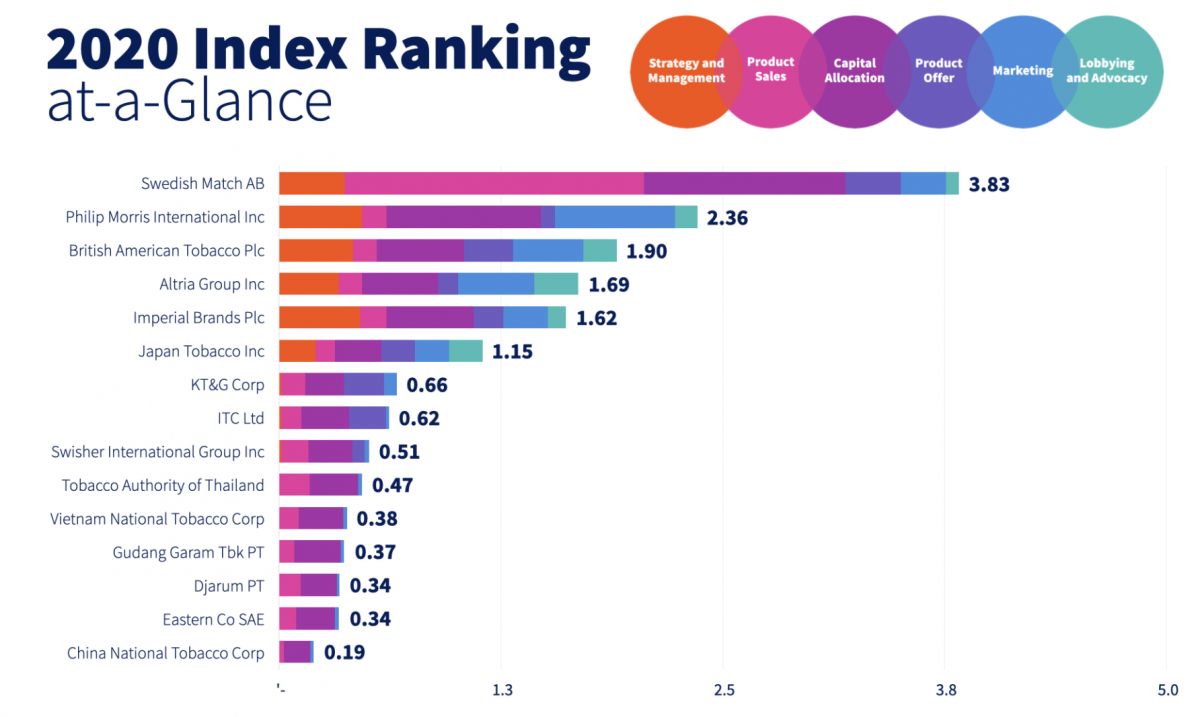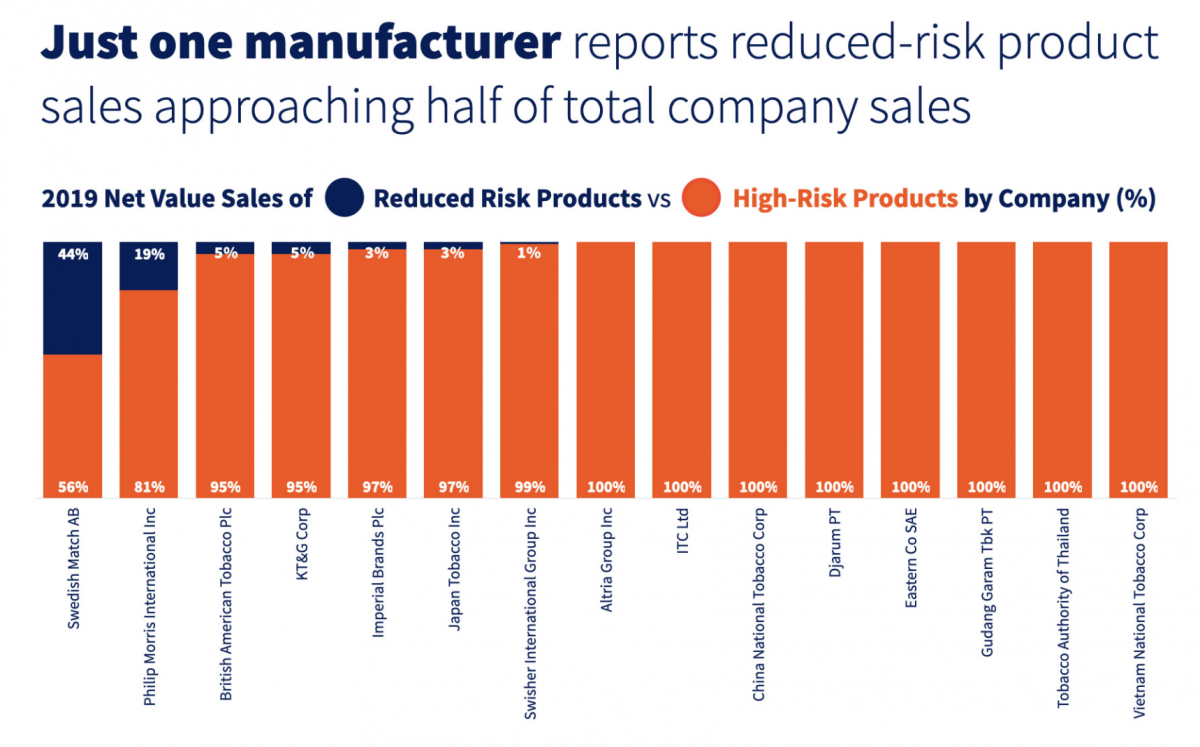The FSFW is “an independent private foundation with the mission of improving global health by ending smoking in this generation. The Foundation strives to achieve its mission by focusing its work on three core pillars: Health, Science, and Technology; the Agricultural Transformation Initiative; and Industry Transformation.”
Although The Foundation has received charitable contributions from Philip Morris International (PMI) its bylaws and pledge agreement ensures it maintains full independence, “and shall make all its decisions on its own, free from the control, interim instructions, or influence from or by PMI or any other third parties.”

The 2020 Tobacco Transformation Index ranks Swedish Match, which divested its cigarette business in 1999, in first position. Phillip Morris International, British American Tobacco, Altria, Imperial Brands, Japan Tobacco, KT&G, ITC Ltd., Swisher International, Tobacco Authority of Thailand, Vietnam National Tobacco, Gudang Garam, Djarum, Eastern Co., and China National Tobacco Corp. follow Swedish Match in the overall rankings.
The Foundation’s President, Dr Derek Yach, said: “Inspired by the success that indexes focusing on other sectors have demonstrated, the goal of the Tobacco Transformation Index is to stimulate external pressure and the industry competition needed to take combustion out of the cigarette market, accelerate change, and lower the unnecessary disease, death, and misery it causes so many people.
“Society and large institutional investors such as banks and pension funds, which represent 85% of investment in publicly traded tobacco companies, have the leverage to push tobacco company management to drive measures that greatly improve health.”

- 13 of the 15 tobacco companies generated at least 95% of net sales value through high-risk tobacco products
- In 2019, Swedish Match’s sales of reduced-risk products accounted for 44% of its net sales
- Philip Morris International’s sales of reduced-risk products accounted for 19% of its net sales
- British American Tobacco and KT&G’s sales of reduced-risk products accounted for 5% of their net sales
- Over the period of 2017-2019, eight of the 15 companies allocated 10% or less of research & development and capital investment expenditures to reduced-risk versus high-risk products
Dr Yach told the Global Tobacco and Nicotine Forum (GTNF): “The recently published Contradictions and Conflicts report identifies inherent conflicts of interest with many of the countries leading the development of global tobacco control policy. Nearly 50% of the global combustible cigarette market is controlled by governments that claim a commitment to the FCTC.”
Related:
Photo Credit:
Image by Gerd Altmann from Pixabay
Dave Cross
Journalist at POTVDave is a freelance writer; with articles on music, motorbikes, football, pop-science, vaping and tobacco harm reduction in Sounds, Melody Maker, UBG, AWoL, Bike, When Saturday Comes, Vape News Magazine, and syndicated across the Johnston Press group. He was published in an anthology of “Greatest Football Writing”, but still believes this was a mistake. Dave contributes sketches to comedy shows and used to co-host a radio sketch show. He’s worked with numerous start-ups to develop content for their websites.
Join the discussion
Harm Reduction For The Rich
The United Kingdom risks becoming a harm reduction country only for the wealthy, according to Michael Landl of the World Vapers’ Alliance
CAPHRA Highlights Tobacco Control Flaws
The Coalition of Asia Pacific Tobacco Harm Reduction Advocates highlights the flaws in tobacco control which has led to the rise of black market in Australia
A Missed Opportunity at COP10
The Smoke Free Sweden movement says that COP10 was a missed opportunity to save millions of lives
COP10: Promote Tobacco Harm Reduction
Experts with Smoke Free Sweden are emphasising the urgent need for a Tobacco Harm Reduction approach at COP10











